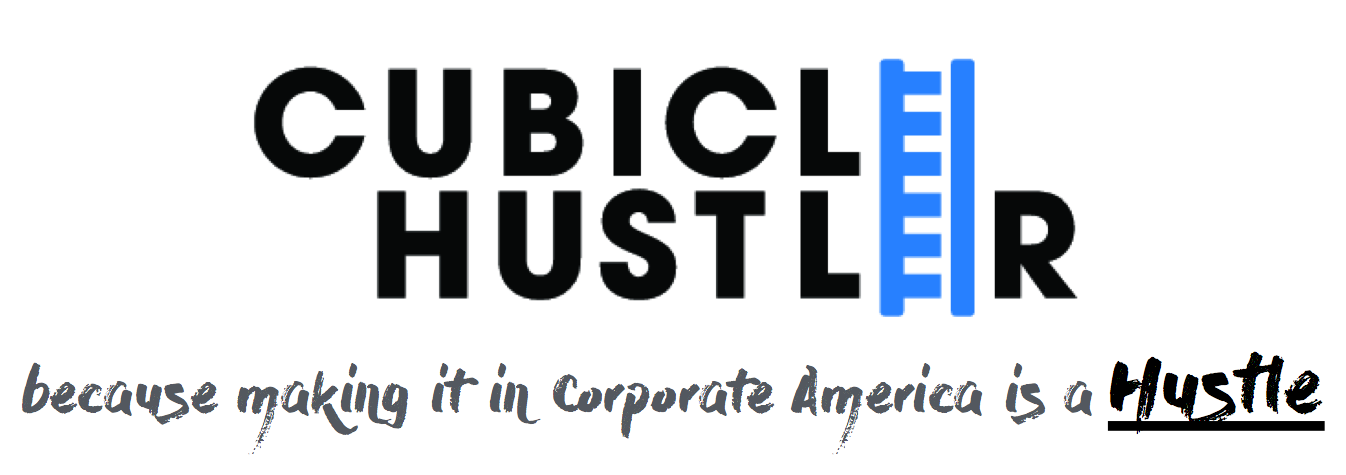Hustle Harder AND Smarter
/Work smarter not harder.
One of those things people say all the time but never explain what it means. And, another career term I generally don't like. Mainly because it tends to discount the value in persistent effort. Persistent effort is generally what it takes to truly learn something for yourself and get better at what you do.
In my world, I prefer to hustle smart and hard.
Hustling smarter means focusing your efforts where they'll have the biggest impact; hustling harder is being willing to go farther than the average person.
Hustle Smarter - Is Done Really Better Than Perfect?
Most teams and companies will rarely come out and tell you which one they value more - precision or pace. If you ask your manager, she's likely to say she wants both. As she should. Nobody wants raggedy work that took forever. But it's not always possible to do your best on a tight deadline. The way you figure out what's most important is by paying close attention.
How often does your team or company use words like "excellence," "precision," "craftsmanship," or "high quality" in presentations, on the company website or in ad copy? If these are part of the corporate language, then perfect is gonna be pretty high up on the list of things you're judged on. If you work in an industry that makes any kind of consumer product, you can pretty much guarantee that the quality of your work is almost as important as the content.
That means you need to be laser-focused on the details. Check your formatting for the tiniest details - like making all of your bullet points aligned and your fonts are the same sizes. Double and triple check the formulas in that spreadsheet to make sure you're reporting the right numbers. Be brutal on yourself in terms of spelling and grammar. Review files two times before you sign off.
Conversely, if the all-stars in your office are praised for their ability to "get things done" or "beat the deadline," you don't want to be the one anguishing over your projects so much it takes you twice as long as your peers to finish them. That means your work needs to be fast enough and good enough. Don't confuse this with being sloppy or rushing through projects. This means that if your boss only needs 75%, give her 85% and let the other 15% go. (Always give your boss a little more than expected).
If you're still not sure, you can always ask. It's the way you ask that makes the difference.
"I'm happy to compile all the research into one summary report. I should have a pretty solid work in progress draft done by Wednesday and can send you the final buttoned up version by Friday. Would you prefer to see the top line report on Wednesday or wait until the final is ready?"
Hustle Harder - Assume Your Work Is Never Done
If you've ever interned, you probably worked on discrete projects that had well-defined beginning, middle and end points. Once you're full time, expect that to never, or very rarely happen again.
The best way to hustle harder is to own your projects fully and assume that there is always something more you can be doing. Take a cue from sales reps - Always Be Following Up.
You completed the report and sent it to operations? Follow up with the team lead after a few days and ask if she needs any more information. You sent an inquiry to an agency and never heard back? Pick up the phone and call to see if they got it.
Beyond these simple ways, always be following up with your manager. Always ask yourself and your manager how what you're working on impacts the overall business, fits into the larger project or helps guide decision making. Then take it a little bit farther.
"An idea for a new product line came up at the team meeting last week so I looked into it. Our key competitor has just launched something similar. Attached is an update on the competitive deck I did last month including this new information."
Taking things as far as you can is a powerful tool because it works at every level. And it engenders so much trust and confidence in you as a professional.
Let's say you're an executive assistant and it's your job to make your boss' lunch reservations. When she comes back, follow up with her on the meal, remember what she said, and use that to your advantage the next time you have to make a reservation. "For your lunch with Peter today, I went ahead and made a reservation at Nello. They have the crab salad you loved on the menu as a special."
Hustle smart and hard.














